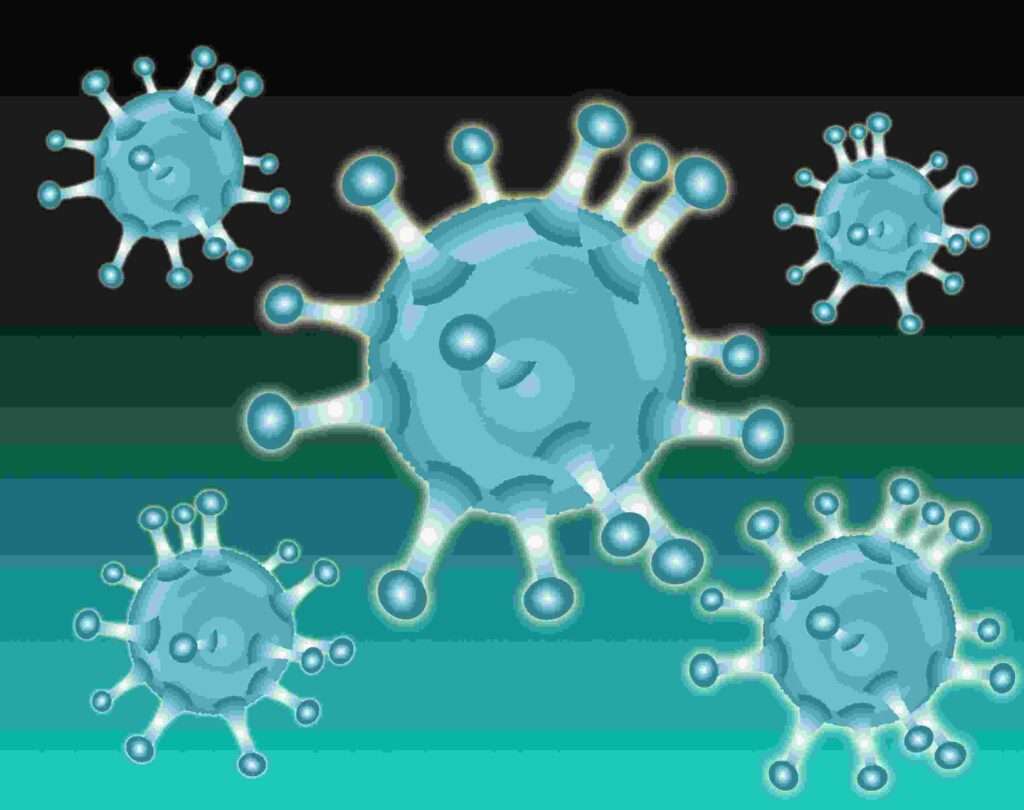What is Respiratory syncytial virus (RSV)?
Respiratory syncytial virus (RSV) is a highly contagious respiratory virus that can cause mild to severe respiratory illness in people of all ages. It is one of the leading causes of respiratory infections in young children and is a common cause of hospitalization in infants and children under the age of 2.

About Respiratory syncytial virus (RSV)
Respiratory syncytial virus is a member of the Paramyxoviridae family and is classified as a negative-sense, single-stranded RNA virus. It is primarily transmitted through respiratory secretions, such as saliva, nasal mucus, and respiratory secretions, which can be spread through close contact with infected individuals or by touching contaminated surfaces and then touching the eyes, nose, or mouth.
Symptoms of Respiratory syncytial virus (RSV)
Symptoms of RSV infection can range from mild to severe and may include fever, coughing, sneezing, runny nose, and difficulty breathing. In severe cases, RSV can lead to bronchiolitis or pneumonia, which can be life-threatening for young children or individuals with compromised immune systems.
There is currently no specific treatment for RSV infection, but symptoms can be managed with supportive care, such as drinking fluids, taking over-the-counter medications to reduce fever and alleviate discomfort, and using a humidifier to help with breathing.
Vaccines for RSV are currently under development, but there is no approved vaccine for the general population. However, there are some medications that can be used to prevent severe RSV infection in high-risk individuals, such as premature infants and individuals with compromised immune systems.
Prevention of Respiratory syncytial virus (RSV)
Preventing the spread of RSV is important in reducing the number of infections and severe cases. Simple measures, such as washing hands frequently, covering the mouth and nose when sneezing or coughing, and avoiding close contact with infected individuals can help prevent the spread of the virus.
It is important for individuals to be aware of the symptoms of RSV infection and to seek medical attention if necessary. Early diagnosis and treatment can help reduce the severity of the infection and prevent complications.
RSV is a common virus, but it can have serious consequences for certain individuals, especially young children and those with compromised immune systems. It is important to take steps to prevent the spread of the virus and to seek medical attention if necessary. With proper prevention and treatment, the impact of RSV can be minimized.
Very Important Details about Respiratory syncytial virus (RSV)
In terms of prevalence, RSV is a global problem, with infection rates highest in young children, especially those under the age of 6 months. It is estimated that almost all children will have had at least one RSV infection by the age of 2, and many will have multiple infections throughout their lifetime. RSV is also a leading cause of hospitalization in young children, with hospitalization rates highest in premature infants and children with underlying health conditions, such as chronic lung disease or congenital heart disease.
RSV infection can also occur in adults, but it is generally less severe and may present as a cold or flu-like illness. In rare cases, severe RSV infection can occur in adults, especially those with compromised immune systems or underlying health conditions.
There are several risk factors that can increase the likelihood of severe RSV infection, including premature birth, low birth weight, underlying health conditions, and exposure to tobacco smoke. It is important for parents and caregivers of young children to be aware of these risk factors and to take steps to reduce the risk of severe RSV infection.
In addition to preventive measures, such as washing hands and avoiding close contact with infected individuals, there are some medications that can be used to prevent severe RSV infection in high-risk individuals. Palivizumab is a monoclonal antibody that can be given to premature infants and children with underlying health conditions to help prevent severe RSV infection. It is administered through injection and is typically given once a month during the RSV season, which is typically from November to April in the United States.
There are also some antiviral medications, such as ribavirin, that can be used to treat severe RSV infection, but they are not commonly used due to their potential side effects and limited effectiveness.
While there is currently no specific treatment for RSV infection, supportive care can be helpful in managing symptoms and preventing complications. This may include giving over-the-counter medications to reduce fever and alleviate discomfort, using a humidifier to help with breathing, and ensuring that the individual is getting enough fluids.
It is important to seek medical attention if you or your child is experiencing severe symptoms, such as difficulty breathing or a persistent high fever. Early diagnosis and treatment can help reduce the severity of the infection and prevent complications.
In addition to preventing the spread of RSV and seeking medical attention when necessary, it is also important to practice good respiratory hygiene to reduce the risk of infection. This includes washing hands frequently, covering the mouth and nose when sneezing or coughing, and avoiding close contact with infected individuals.
While RSV is a common virus that can affect people of all ages, it can have serious consequences for certain individuals, especially young children and those with compromised immune systems. It is important to be aware of the symptoms of RSV infection and to take steps to prevent the spread of the virus. With proper prevention and treatment, the impact of RSV can be minimized.
Click to know 5 Practical Tips for Managing the Respiratory Syncytial Virus

